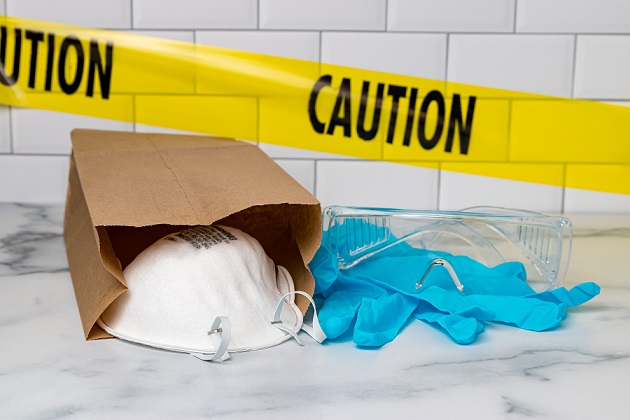BSIF Advice on Purchasing Respiratory Protective Equipment (RPE)
Posted on 09 April, 2020

Respiratory Protective Equipment (RPE) is PPE utilised to protect the wearer from the inhalation of hazardous substances present in the surrounding air and can be divided into two main types:
Respirator (filtering device) – uses filters to remove contaminants in the workplace air:
- Non-powered respirators – rely on the wearer’s breathing to draw air through the filter
- Powered respirators – use a motor to pass air through the filter to give a supply of clean air to the wearer
Breathing apparatus (BA) – needs a supply of breathing-quality air from an independent source (e.g. air cylinder or air compressor)
Both respirators and BA are available in a range of different styles, which can be put into two main groups:
- Tight-fitting facepieces (often referred to as masks) - rely on having a good seal with the wearer’s face. These are available as both non-powered and powered respirators and BA. Examples are filtering facepieces, half and full-face masks.
- Loose-fitting facepieces – rely on enough clean air being provided to the wearer to prevent contaminant leaking in (only available as powered respirators or BA). Examples are hoods helmets and visors.
At Dimensions, we encourage all of our clients to be vigilant when purchasing PPE products and recently contacted the British Safety Industry Federation (BSIF) to see what they could advise when procuring RPE:
“Over the past 2 weeks the BSIF have received a number of enquiries relating to CE Certification and Declarations of Conformity – specifically for Respiratory Protective Equipment (RPE) to be bought into the UK for supply to key healthcare workers.
The ‘certificate’ below is one of many the BSIF have seen, but it is not what it first appears; this is NOT a CE Certificate and is also not a Declaration of Conformity.
The BSIF will be publishing further guidance in the next few days relating to how you can check the supporting documentation to ensure it is accurate and relates to the PPE it refers to. Firstly, you can check whether the company issuing the certificate is a notified body via the Nando website:
The BSIF have also produced a CE Certificate Checklist, which can be downloaded here, that can be used to help identify if the product certificate is legitimate.”
Gallery
Downloads
CE Certificate Checklist 2020
Recent Articles
Calling Young Designers to Create the Uniform of the Future!
Team Dimensions Joins Greggs Foundation’s 2024 Charity Walk, Supporting Breakfast Clubs for Children in Need
The first 2024 Uniform Hero is revealed!
Dimensions support 300 young people at Co-op Academy Manchester
Dimensions donates uniform items to support the annual Waitrose Garden Party.
